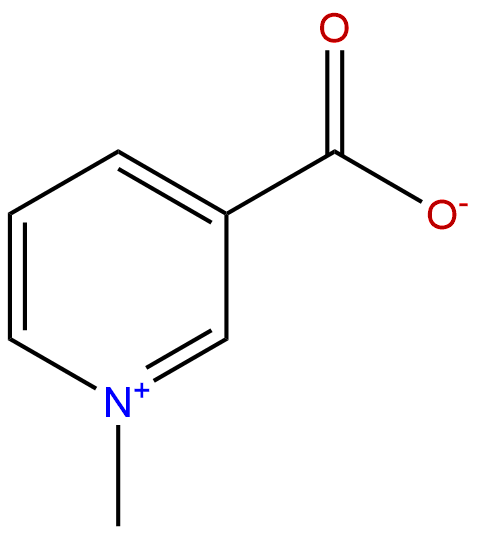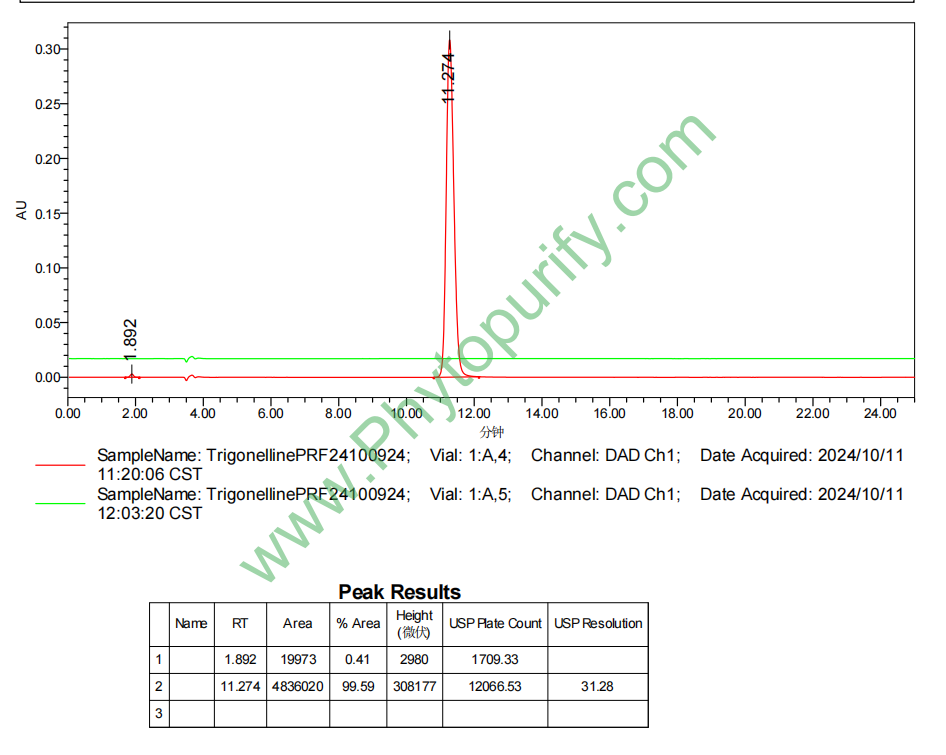
TrigonellineCAS No.:535-83-1
|
||||||||||
 |
|
|
||||||||

| Catalogue No.: | BP1407 |
| Formula: | C7H7NO2 |
| Mol Weight: | 137.138 |
Product name: Trigonelline
Synonym name: N-Methylnicotinic betaine; Gynesis; Coffearin
Catalogue No.: BP1407
Cas No.: 535-83-1
Formula: C7H7NO2
Mol Weight: 137.138
Botanical Source: Trigonella foenum-graecum L.
Physical Description:
Type of Compound: Alkaloids
Purity: 95%~99%
Analysis Method: HPLC-DAD or/and HPLC-ELSD
Identification Method: Mass, NMR
Packing: Brown vial or HDPE plastic bottle
Can be supplied from grams to kilograms.
Inquire for bulk scale.
Trigonelline, also known as caffearin or gynesine, belongs to the class of organic compounds known as alkaloids and derivatives. These are naturally occurring chemical compounds that contain mostly basic nitrogen atoms. This group also includes some related compounds with neutral and even weakly acidic properties. Also some synthetic compounds of similar structure are attributed to alkaloids. In addition to carbon, hydrogen and nitrogen, alkaloids may also contain oxygen, sulfur and more rarely other elements such as chlorine, bromine, and phosphorus. It is also found in coffee, where it may help to prevent dental caries by preventing the bacteria Streptococcus mutans from adhering to teeth. Trigonelline is a moderately acidic compound (based on its pKa). Trigonelline exists in all living organisms, ranging from bacteria to humans. Outside of the human body, Trigonelline is found, on average, in the highest concentration within a few different foods, such as arabica coffee, fenugreeks, and common pea and in a lower concentration in yellow bell peppers, orange bell peppers, and muskmelons. Trigonelline has also been detected, but not quantified in, several different foods, such as rices, triticales, alfalfa, cereals and cereal products, and ryes. This could make trigonelline a potential biomarker for the consumption of these foods. Trigonelline is a product of the metabolism of niacin (vitamin B3) which is excreted in the urine. Trigonelline in the urine is a biomarker for the consumption of coffee, legumes and soy products. Trigonelline is an alkaloid with chemical formula C7H7NO2 and CAS number 535-83-1. Trigonelline occurs in many other plants, including fenugreek seeds, garden peas, hemp seed, oats and potatoes.
HPLC of Trigonelline
